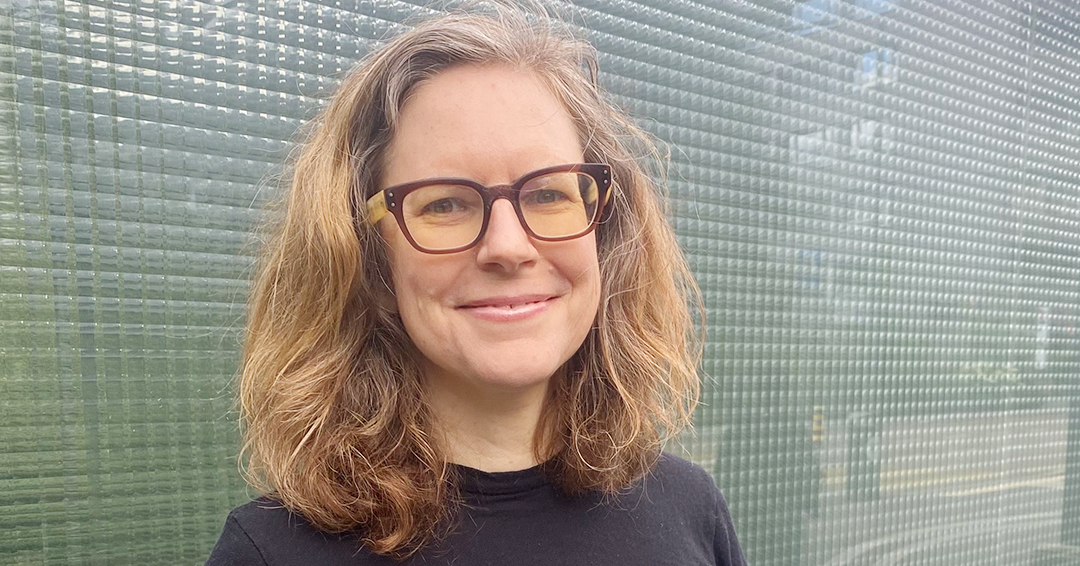


Backed by a grant from the federal government’s New Frontiers in Research Fund, Audrey Grant, PhD, Assistant Professor in the Department of Anesthesia, is set to begin research on the impact of air pollution on asthma in adolescents in Benin, a study that promises to have broad implications.
Titled “Reducing local air pollution exposure among adolescents with asthma in Cotonou, Benin, West Africa,” the project will focus on a region that reportedly suffers from the highest outdoor particulate matter concentrations in the world. Prof. Grant and colleagues will use their findings to develop a personalized air pollution exposure prevention program.
Prof. Grant pursued doctoral studies genetic epidemiology at Johns Hopkins Bloomberg School of Public Health, in Baltimore where she examined the relationship between parasitic disease and asthma in Brazil. “I was interested in using genetic epidemiology to study quantitative traits as they relate to disease in remote populations in developing countries,” she explained.
Her postdoctoral studies took her to a lab sponsored by the Institut national de la santé et de la recherche médicale (Inserm), a scientific and technological institute based in Paris, operating under the French Ministries of Health and Research. There, Prof. Grant investigated the genetic epidemiology of tuberculosis and statistical genetics methods.
In 2015 she arrived at McGill to take on the role of research associate at the Genome Centre working with biobanks of data and shifting her phenotypic focus from studies of immune diseases to look at chronic pain. “Some of my work continues with the direction that I had originally, which was more asthma and immunological disease, and then some of my work now moves into chronic pain. I also look at the overlap between these two worlds.”
The Cotonou initiative is nested in a cohort study of adolescents recruited from schools across the city, which is the largest in Benin. Subjects start by completing a questionnaire detailing their social activity and any symptoms of asthma. They will be followed over a specified period, and through an interdisciplinary approach researchers will introduce interventions designed to change behaviour.
“The children in this environment who are exposed to very high levels of pollution will then, through the change of behaviour, reduce their exposure to pollution,” explained Prof. Grant. “Then we want to be able to determine the actions that lead to a reduction in symptoms of asthma, or an improvement in the ability to control it. With adolescents, we deal with a lot of potential resistance to change of behaviour, and so we need to address head-on aspects relating to the possibility of actually changing the behaviour of the study subjects.”
While there has been research looking at the direct effects of pollution at a more cellular level, the Cotonou study will examine circumstances at the population level. “It’s a big area of interest for me to be able to work on studies where we’ll collect genomic data on individuals who have African ancestry, and even more of interest is that they actually reside in Africa,” Prof. Grant said.
The study group of 300 adolescents will be compared to a second group of 300 who will receive standard advice from physicians. Looking at biomarkers in air exhalate will allow researchers to ultimately combine this with genomic data to investigate gene-environment interactions.
Profé. Grant notes that the study could provide a basis for asthma research worldwide. “There are other cities in other parts of the world with high densities of populations and lots of traffic, and then anywhere else in the world where there are lower levels of pollution. It will be possible to extrapolate the results from this study. There will be certain aspects of the results that will be generalizable very broadly.”
As an adjunct to the research in Cotonou, Prof. Grant will then investigate the genetic overlap between the susceptibility to adult-onset asthma and chronic pain. “I think it’s something that’s quite new that we will be able to put forward with our work.”